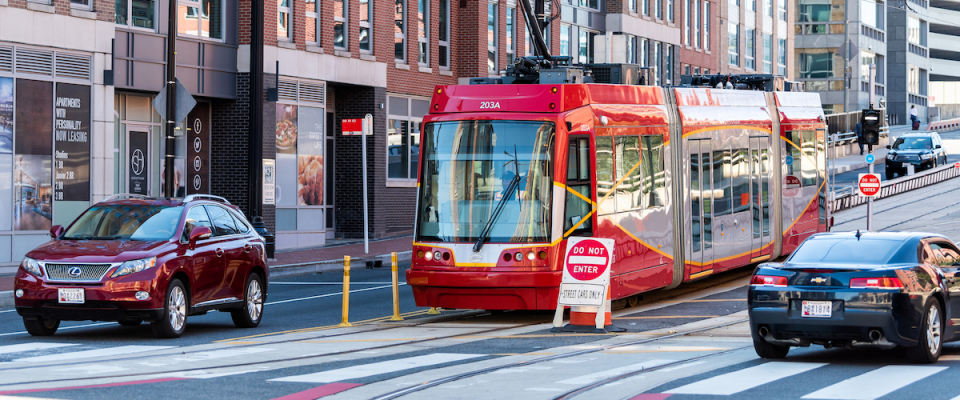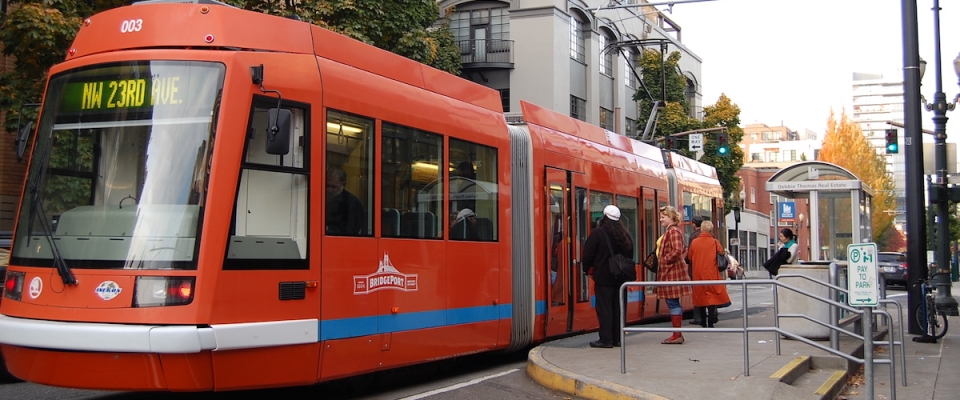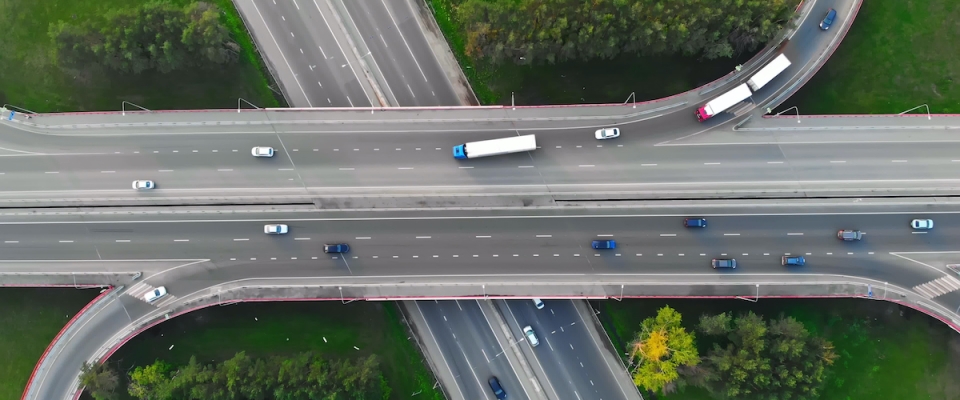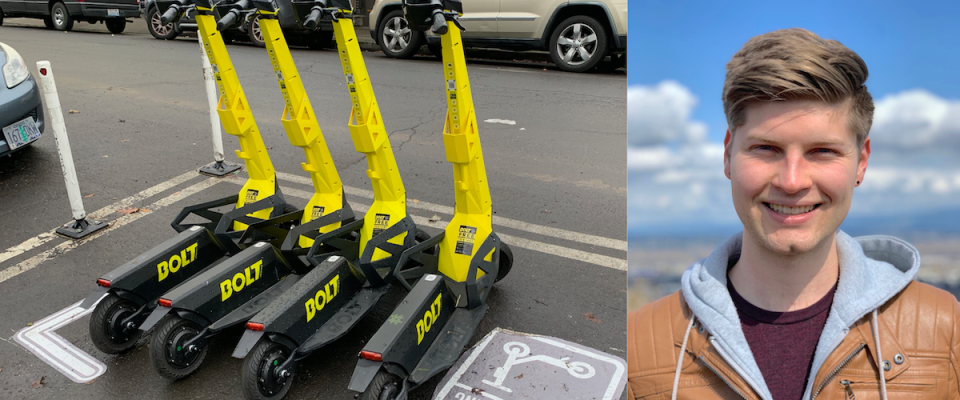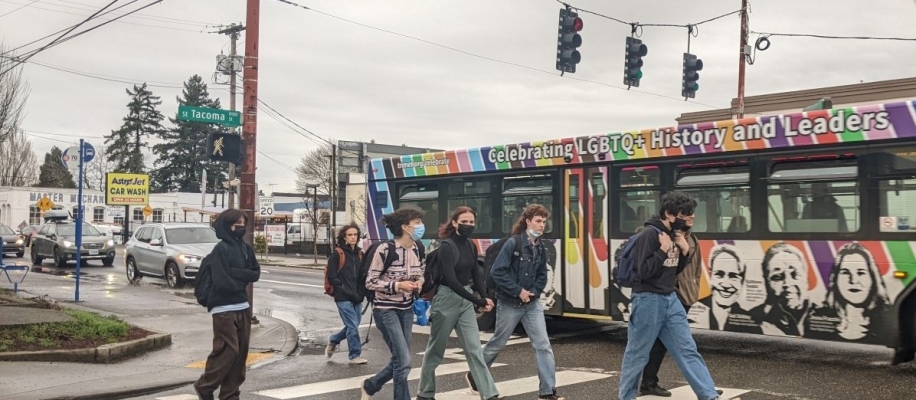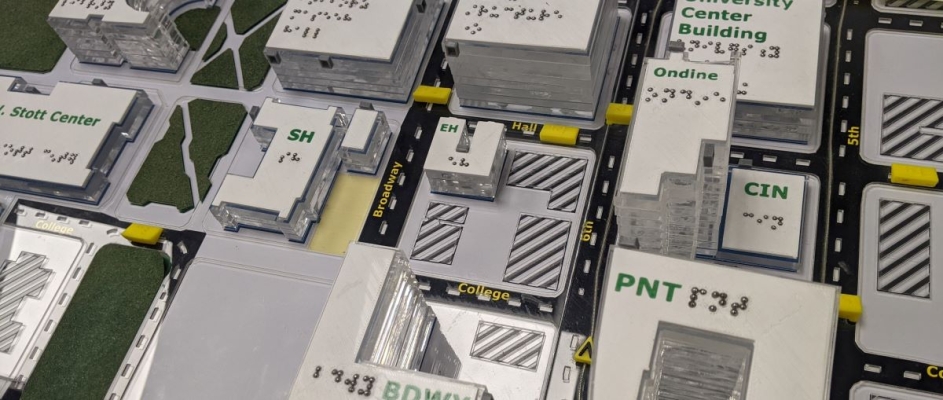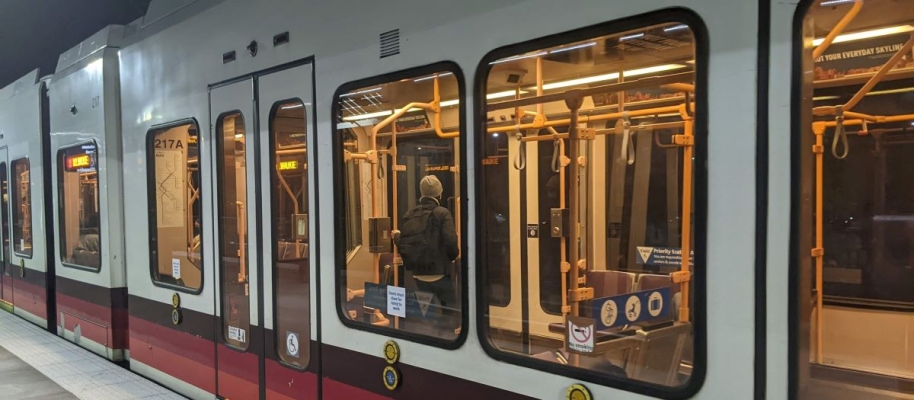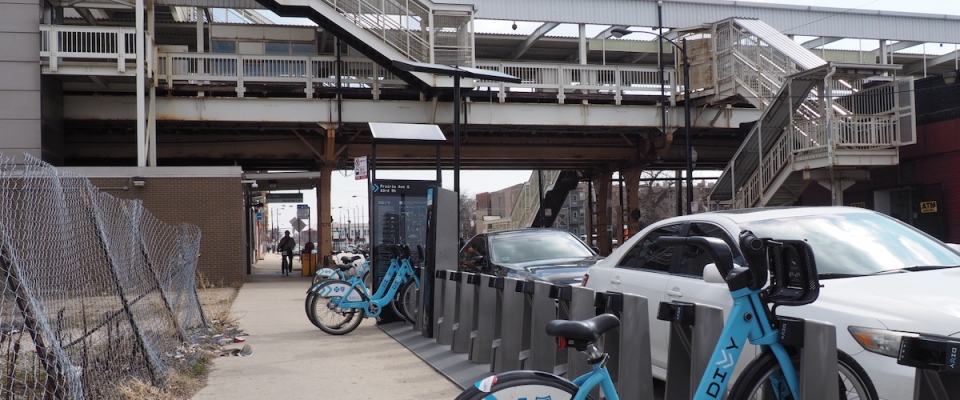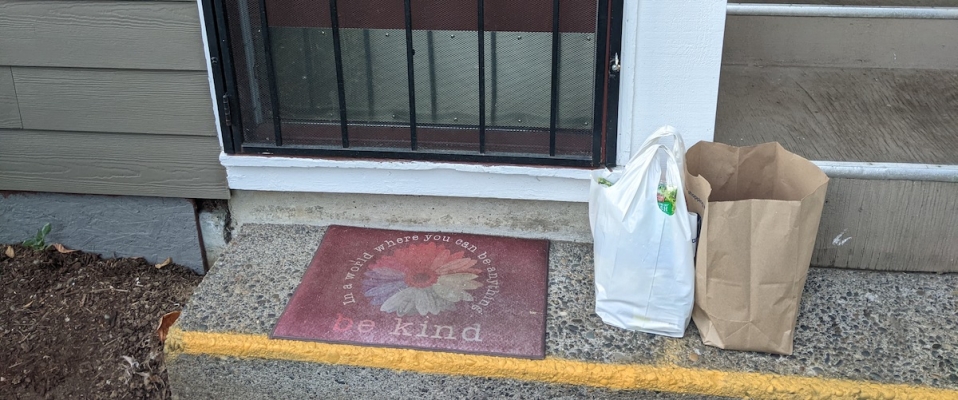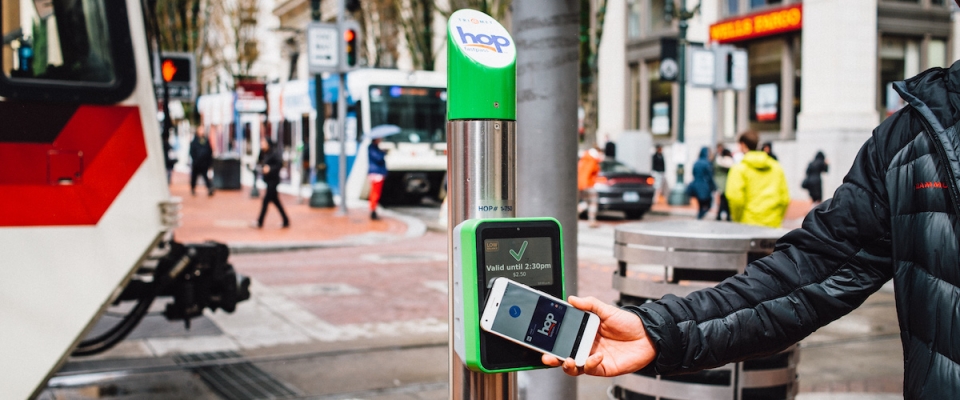Public transportation agencies are well acquainted with the consequences of unsheltered homelessness. A new report published this month provides timely and valuable information about how transit agencies can support people experiencing homelessness in our communities and minimize the impacts on public transportation services and facilities.
The report, funded by the Transit Cooperative Research Program (TRCP), was co-authored by TREC's sustainable transportation program manager John MacArthur along with Marisa Zapata, Anna Rockhill and Rebeca Petean of Portland State University's Homelessness Research and Action Collaborative (HRAC). The researchers will present on the project in an upcoming webinar (date TBA) in March 2024, hosted by the Transportation Research Board (TRB).
While transit agencies cannot address the underlying causes of homelessness, there are opportunities to work with local partners to be a part of helping individuals in need, while providing a safe, reliable, and customer-friendly experience for all riders.
Read more"I think transit agencies can no longer look at themselves as just providing transit. Their role in the way a community functions is so much bigger than that. Transit is the connection that gets a lot of people to essential services that will improve their lives. Transit agencies need to rethink how they are serving all riders, including people experiencing homelessness, and how they can - more humanely and with...

